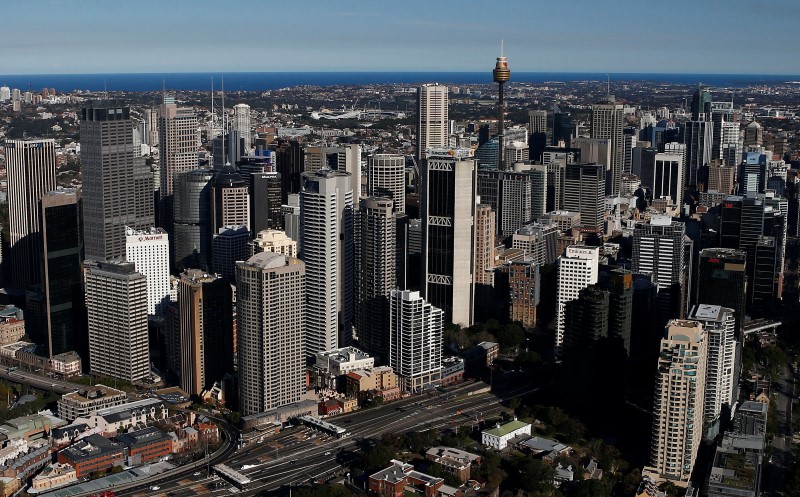By Wayne Cole and Cecile Lefort
SYDNEY (Reuters) - It is an exclusive club of just 10 members. But what happens when the cost of staying in starts to outweigh that of leaving?
That is the dilemma Australia's conservative government faces over its coveted triple-A credit rating. With an election set to be called for July 2, the rating has become a millstone, seemingly more important politically to preserve than spending on desperately needed infrastructure.
It was front page news when ratings agency Moody's warned next month's budget would have to raise taxes as well as cut spending to rein in deficits and safeguard its highest rating.
This was not welcome advice for Prime Minister Malcolm Turnbull, who has pledged not to raise the overall tax burden.
His party has spent years demonizing debt and won power largely by painting the Labor opposition as profligate spenders who tipped the country into a "debt and deficit disaster".
Yet for the vast majority of Australians a sovereign credit downgrade would mean next to nothing. Even for the government the impact on borrowing costs would be marginal.
"There is not much difference between AAA and AA," said James Alexander, head of fixed income at Nikko Asset Management in Sydney. "In many ways, it has become a political issue. No one wants to be the one where the AAA rating has gone on their watch." Nikko manages A$11 billion in fixed income in Australia.
For in a world where so many countries were downgraded so sharply in the wake of the global financial crisis, double A is the new triple. That is especially the case when many central banks have been scooping up their own nation's debt.
Spain, for instance, is just BBB+ yet thanks to buying by the European Central Bank can borrow for a decade at 1.47 percent. It costs Australia 2.57 percent for the same privilege.
Peter Jolly, head of research at National Australia Bank, estimated a one-notch ratings downgrade would add just a couple of basis points to the current cost of debt.
"Australia is not getting a big advantage in terms of funding costs," Jolly said, noting neighbor New Zealand paid much the same in global markets but was rated two notches lower.
OPPORTUNITY COSTS
While the financial toll of losing the triple-A may not be that large, the government's obsession in trying to keep it does bear substantial opportunity costs.
Pleasing the ratings agencies seriously constrains the government's ability to borrow to fund infrastructure, even though interest rates are the lowest in human memory.
Australia may be the world's 12th-largest economy, but its outdated public transport and internet lags far behind peers. Traffic congestion cost around A$16 billion to businesses and residents last year, according to official estimates.
The internet is even slower than in emerging countries such as India, with a U.S. study ranking Australian connection speeds 48th in the world.
Australia would seem to have plenty of scope to fund needed spending through borrowing. General government gross debt is around 37 percent of gross domestic product (GDP), compared to an average of 117 percent for the Group of Seven rich nations. Even that paragon of fiscal rectitude, Germany, has debt of 68 percent.
Indeed, some fund managers would be more than happy if Australia borrowed more.
"A credit downgrade would not be a big deal. There is not enough Aussie bonds on supply and Australia is one of the few countries with a positive yield," says Kumar Palghat, managing director of fund management company Kapstream Capital in Sydney.
Instead, Palghat, whose fund holds around 10 percent of its A$10.5 billion assets in Australian government and state-bonds, said the government should take advantage of the lowest borrowing rates in human memory and spend on infrastructure.

"A deficit is not a bad thing as long as you borrow money to invest, versus borrowing to spend."